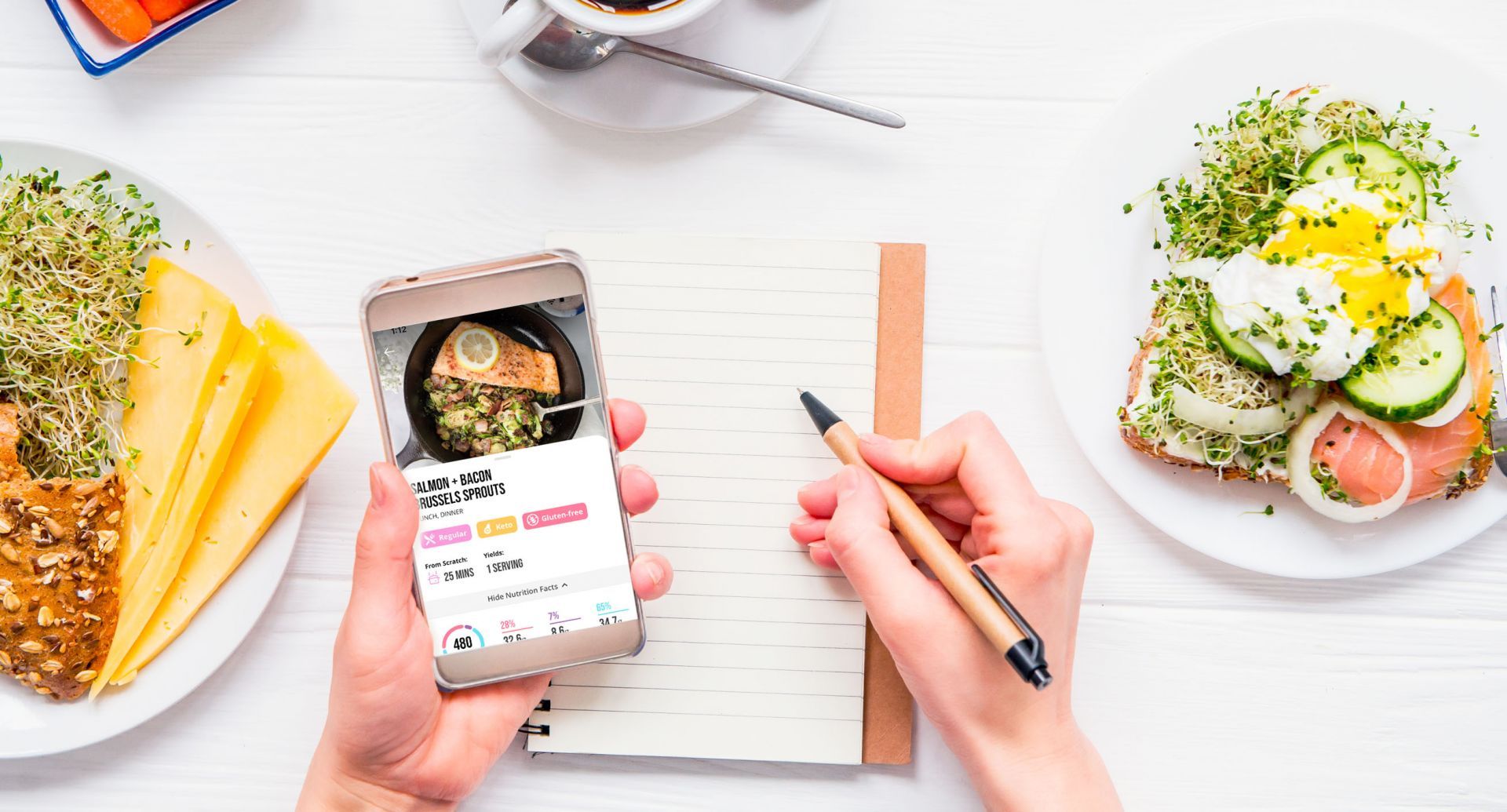9 Healthy Eating Quick Tips
by Anna Victoria in Recipes + Nutrition
If you are a complete beginner and are worried about being able to change your eating habits all in one day, don’t worry! It’s not necessary to get everything right from the start in order to be successful in the long run. Changing your eating habits can be challenging at times, so don’t expect to be perfect!
TRY THE FIT BODY APP FREE FOR 7 DAYS! DOWNLOAD NOW.
Here are my biggest healthy eating quick tips:
1) Read Labels
This is a simple way to determine how healthy a product actually is. Try to avoid hydrogenated oils, artificial flavors and colors, preservatives, high amounts of fat or sodium, and added sugar. A good rule of thumb is to keep the ingredients in any particular product to five or less. The more ingredients there are, the more processed and unnatural it is.
2) Cook at Home
This is an easy way to start eating more whole foods and save money in the process! Restaurants and fast food rely on highly processed foods to create their meals and add extreme amounts of salt and butter. Cooking at home allows you to add your own ingredients and pay attention to exactly what goes into your body. Take this one step further and meal prep to make sticking to your meal plan even easier! You’ll be amazed at how much time and money you can save!
3) Focus on a Few Favorite Foods
If you’re a meat lover, start by purchasing meat from grass-fed cattle, or buy free-range eggs. If you’re a produce lover, start buying organic fruits & veggies.

4) Don’t Bring Junk Food into the House
This can be hard if you buy food for the whole house or if you live in a house where others don’t eat healthily. In this case, you will just need to strengthen that will power muscle! But if you can, don’t even buy it. This will make it much easier to opt for the healthy food you did buy.
5) Shop the Perimeter
Most whole, natural foods are found on the outside aisles of grocery stores. Avoid going in the center aisles where almost everything is packaged and processed (and made in a factory).
6) Slow Down
If you are sharing dinner with a friend or even eating alone, take time to put your fork down between mouthfuls and fully chew your food in order to give your brain time to register your food intake. Oftentimes if you are in a hurry to eat, whether due to hunger or time constraints, you might “inhale” your food rather than chew each bite which can sometimes lead to eating more than you’re hungry for. Take time to pay attention and listen to your body and your hunger and fullness cues.

7) Concentrate
You can cut down on your food intake simply by turning off the TV and sitting at the dinner table rather than eating from your lap.
8) Stop Browsing
If you find yourself frequently going to the kitchen to browse for snacks, more than likely they won’t be healthy. If you want a snack, get a bowl so you can regulate the portion and choose healthier snack options that are both satisfying and nourishing!
9) Recognize Hunger
Ask yourself if you are truly hungry or simply using food to help you cope with boredom, emotions, etc. Eating healthy and sensible portions for breakfast, lunch, and dinner will help you recognize when your body needs food since you will be less likely to have blood sugar imbalances throughout the day.



